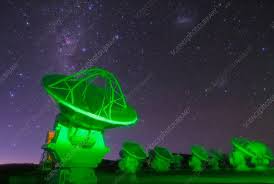
Satisfied with Your Life?
As a seminary student in my 20s, my friend, Gerald Waris, and I used part of the money we earned working in a brewery to take a summer’s-end trip to San Francisco. We picked that city because my aunt could put us up for free and because I, at least, wanted to go deep-sea fishing.
We set out on a fishing boat to the Farallon Islands, about 30 miles west of the Golden Gate Bridge. The fishing was great – we caught several large salmon – but the friendship we developed with the boat’s owner was even better. He was intrigued by the fact that we were pursuing the priesthood and willing to be celibate.
I’ve never forgotten something he said to me: “You know what I admire about you?” “No,” I replied. “That you are satisfied with your life and what you have.”
I wasn’t satisfied with celibacy, it turns out, but otherwise his observation was, to a great extent, accurate. And I’ve become more satisfied, and grateful, the older I get. (Being satisfied can’t be smugness, of course. That’s fatal for faith.)
Way I Was Raised
Part of this, undoubtedly, is due to the way I was raised. But I believe part is also due to having lived and worked among the poor of Bolivia and having made many trips to El Salvador and other parts of Latin America. Who can experience the grim conditions in which so many people in the world live and not be satisfied, and extremely grateful, for how most of us Americans live?
Another part, perhaps, is due to the influence of Jesus’ remarks about the poor, phrases like, “Blessed are the poor. Theirs is the kingdom of heaven.” And, “It’s easier for a camel to pass through the eye of a needle than for a rich man to enter the kingdom of heaven.”
In a sense, Jesus was talking about being satisfied with what you have. This is not only a religious imperative, but a recipe for a happier life. Greed for money and stuff – even the more subtle kind that is often referred to as conspicuous consumption – is, I believe, a formidable obstacle in the search for God.
Substitute for God?
That’s because money and stuff can be a substitute for God. That’s among the reasons so many in the western world have a problem with belief. When you have so much going for you, you can easily arrive at the myopic question, “Who needs God?”
And this isn’t just a problem of one’s own spirituality, or lack thereof. It’s a kind of spiritual pandemic partially resulting from a culture of exaggerated consumption and unthinking waste.
We’re surrounded by messages that promote this idea. An example is a recent item on the MSN web site entitled, “The Easiest Places in America to Get Rich.” It assumes that it is, or should be, the goal of every American to get rich. And it appears to promote the idea that we must strive for the material things that seem beyond our reach, and that reaching them will bring happiness.
Many may see a political message in this blog that can easily be dismissed, but it’s only political if you see the gospel, and how the gospel is played out in real life, as political.
Disordered Desire
In his 2015 encyclical Laudato Si, Pope Francis wrote about a “disordered desire to consume more than what is really necessary” as well as a “use-and-throw away culture.”
“Nobody is suggesting a return to the Stone Age,” he wrote. “But we do need to slow down and look at reality in a different way, to appropriate the positive and sustainable progress which has been made, but also to recover the values and the great goals swept away by our unrestrained delusions of grandeur.”
Commenting on the Pope’s words, Orthodox Archbishop John Zizioulas said, “The pursuit of individual happiness has been made into an ideal in our time. Ecological sin is due to human greed, which blinds men and women to the point of ignoring and disregarding the basic truth that the happiness of the individual depends on its relationship with the rest of human beings.”



